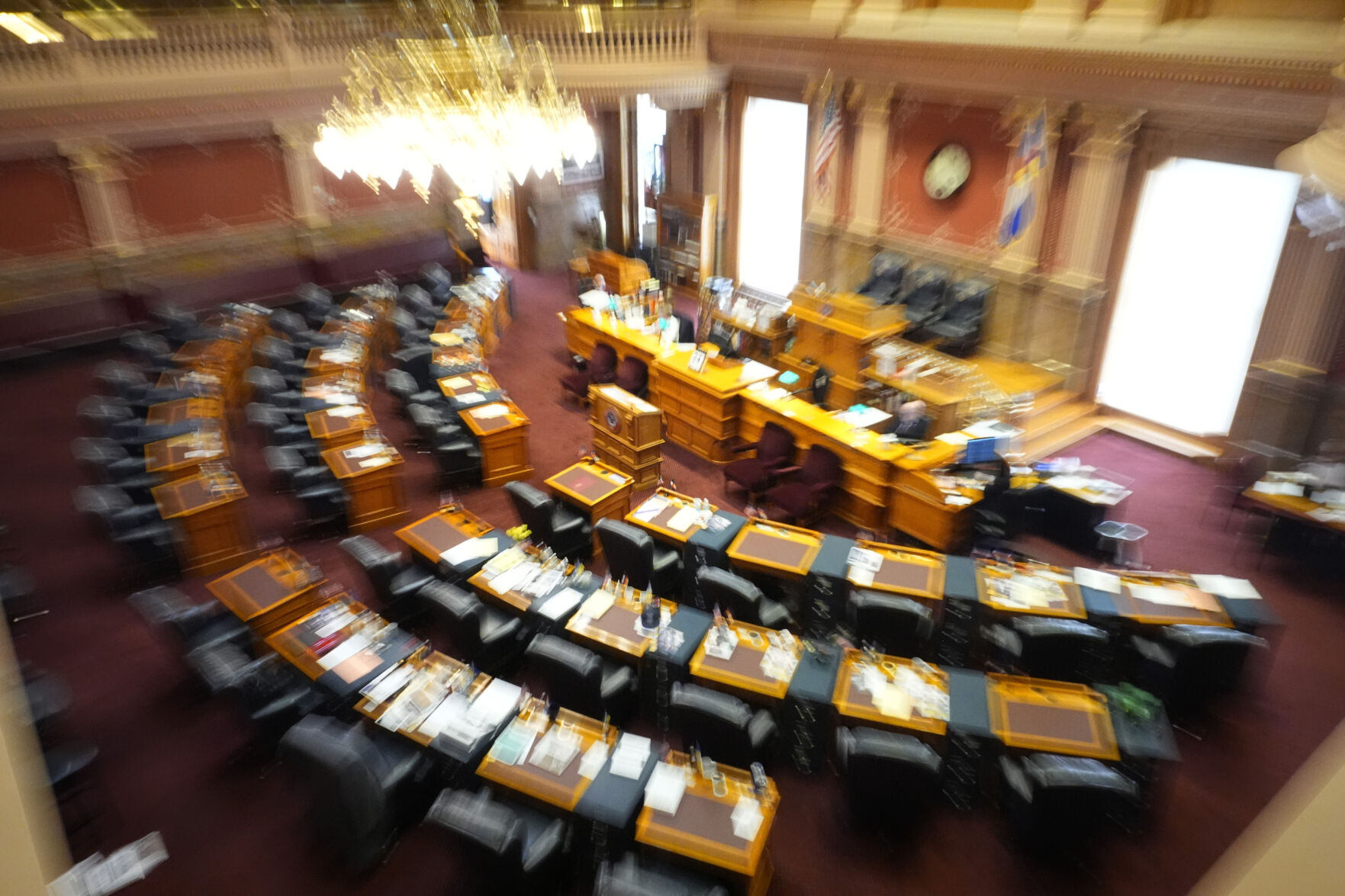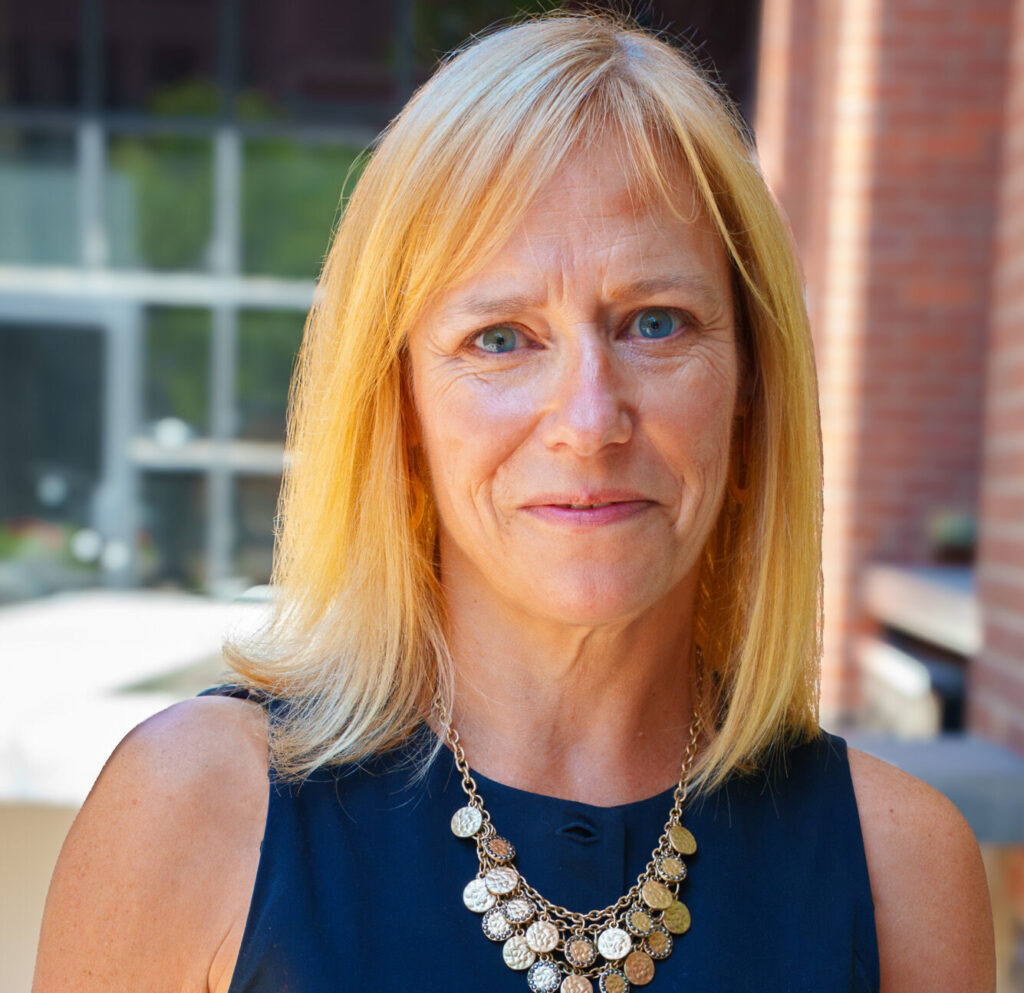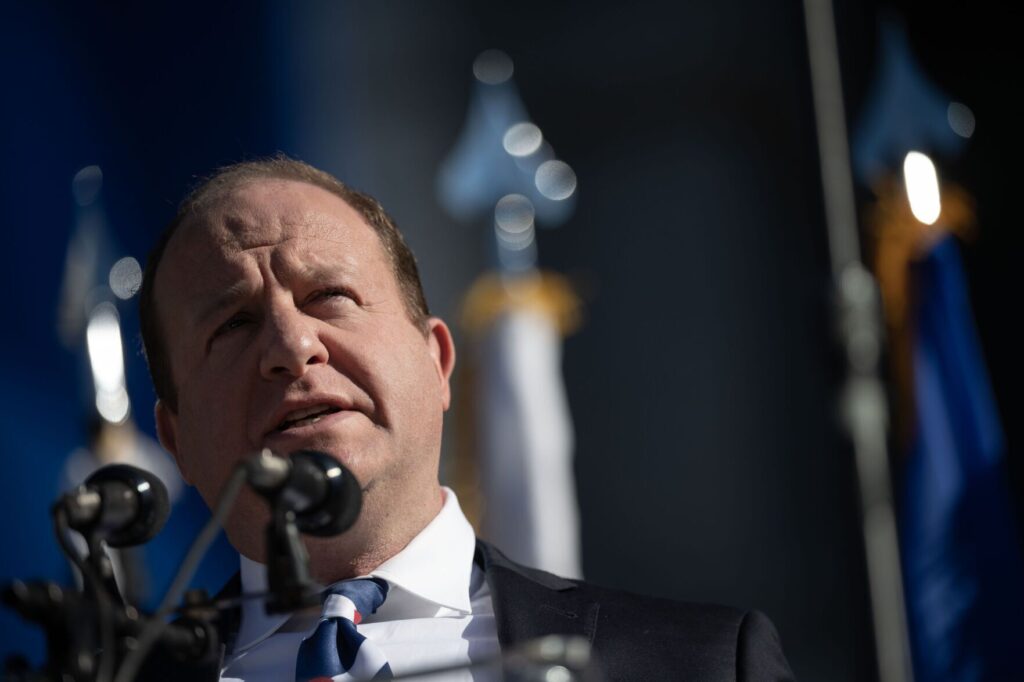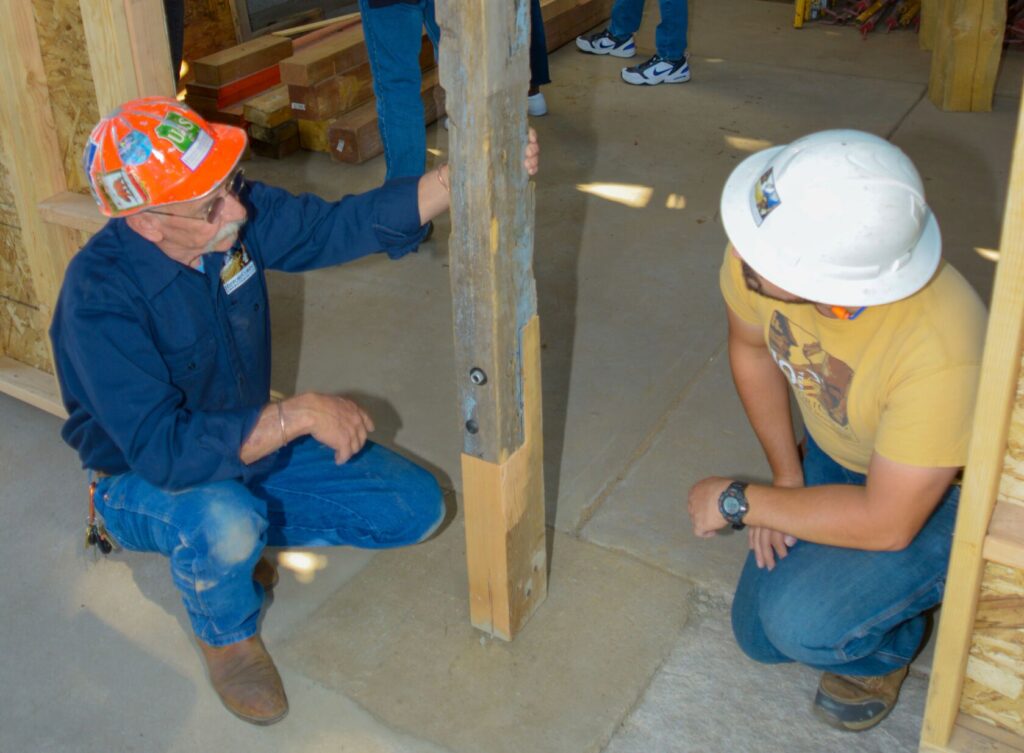A tale of two legislatures: Republicans, Democrats find more common ground, even amidst usual partisan bickering

It was the best of times, it was the worst of times.
But it’s probably the next few lines of Charles Dickens’ opening in his book, “A Tale of Two Cities,” that perhaps best describe what’s been unfolding at the Colorado General Assembly in the last two sessions
It was the age of wisdom, it was the age of foolishness.
It was the epoch of belief, it was the epoch of incredulity.
So wrote Dickens, setting up the plot for his book about love, friendship, and tragedy, but also about the tyranny of the aristocracy and the excesses of revolutionary movements, all against the backdrop of the French Revolution.
On multiple levels of analysis, Dickens’ dichotomies illustrate the “two legislatures” at the state Capitol.
In one “legislature,” members routinely push measures designed to solely win the support of their party mates. Such proposals possess a strong ideological bent, and while they seek to tackle major societal problems, they often eschew any middle ground, preferring, instead, to approach solutions through partisan lenses.
For Democrats, that often applies to their bills on climate, guns, gender identity, abortion or elections. For Republicans, that often means measures on illegal immigration, school choice and, also, abortion.
Then there’s the other “legislature,” in which legislation draws support from both sides and solutions appear to be more pragmatic, or at least palatable to some members of both parties.
Funny enough, it’s sometimes the same people who make up these “two legislatures.”
Consider this: Lawmakers usually introduce at least 600 bills during a typical 120-day session, and as much as 80% of those measures are, in fact, bipartisan. The public doesn’t always read about them often because they don’t reflect the major policy agenda of either party.
What the public hears about, instead, are the measures on major issues that elicit sharp opposition and support, and where the ideological underpinnings of each party are often most palpable.
That remains true today.
But the 2024 session has been different. Notably, major policy bills – on property taxes, housing, education, even on guns – have drawn bipartisan support, even if some of those bills don’t make it out of committees.
In many ways, too, last year’s “legislature” is markedly different from this year’s “legislature,” though their makeup is practically the same.
Lawmakers exhibit bipartisan impulse on property taxes
The two issues that divided lawmakers more than any other subject last year was property taxes and land use. Proposals surrounding the latter sought an elusive goal – affordable housing in Colorado.
This year, those are the issues showing signs of unity between lawmakers from both sides of the aisle.
Last May, at the end of the session, House Republicans, furious over being denied amendments and with limitations placed on how much they could speak on some measures, walked out of the chamber and refused to vote on the signature property tax measure of 2023 – Senate Bill 303.
That measure eventually became Proposition HH, which voters rejected the following November by a landslide margin of about 20 percentage points.
It was the special session that followed just two weeks later where the tide may have started to turn.
While the bills that came out of that session passed largely along party lines, including the main measure designed to provide limited property tax relief, it showed some of the early signs that the two sides were coming out of the impasse.
Chief among them was the bill creating a property tax commission tasked with finding long-term solutions and which will release its preliminary findings in the next few days.
While no Republicans voted for the bill, the GOP footprint on the measure was unmistakable.
So were the efforts from Democrats to listen and find a more bipartisan path forward.
The bill, as introduced would have made the 11-member commission dominated by lawmakers, a total of six from the House and Senate, plus the state property tax administrator and one county assessor. The panel would have excluded any local government representation, including from county commissioners, who deal with property taxes on a daily basis.
When it left the House, the panel had grown to 18, adding two county commissioners, and both could have come from counties of around the same size, above or just below 300,000. It didn’t require any regional representation.
Once the bill reached the Senate, co-sponsor Sen. Kyle Mullica, D-Thornton, went to work with one of his Republican counterparts, Sen. Byron Pelton, R-Sterling.
The end result was a panel of 19 that included five county commissioners, representing five state regions, rather than being based on county population, plus a mayor.
Pelton was a brand-new lawmaker who joined 2023 and brought in years of previous experience as a Logan County commissioner.
Pelton carried a property tax bill during the special session, and while it failed in committee, his work with Mullica borrowed heavily from the task force language in his measure that was incorporated into the bill eventually signed by the governor.
That included adding the five county commissioners from five regions of the state, arising out of his experience as a county commissioner.
While the end result still didn’t bring in any Republican votes, the collaboration between the two sides was obvious.
And when the 2024 session started just six weeks later, the conversations around some of the biggest policy issues facing lawmakers started to look a little different.
Something else happened that brought to the fore the toxicity of the atmosphere that permeated the state Capitol in the last year, and, which, perhaps led lawmakers to reconsider their approaches.
Between November and January, two lawmakers put an exclamation point on the toll that partisan-driven divisiveness took on the 2023 session.
Rep. Ruby Dickson, a first-year Democratic lawmaker from Littleton, resigned in early December, citing a “vitriolic” environment that she said wasn’t good for her mental health. Rep. Said Sharbini, D-Adams County, resigned less than three weeks later, and while financial issues played the major role, he, too, cited the House environment for his decision.
Indeed, a dozen long-time Capitol observers, including lobbyists, confirmed to Colorado Politics how toxic the state Capitol had become last year.
And they noted it hasn’t been all that long ago that lawmakers took a break from partisan bickering to work together on major legislation, such as the American Rescue Plan Act bills from the 2021 and 2022 sessions.
Senate, House members collaborate on housing
The governor’s land use proposal that would have stripped local governments of their authority on zoning also divided lawmakers, with Republicans and Democrats who have local government experience siding with county commissioners and their advocates and against party mates who carried the governor’s proposal.
The last day of the 2023 session saw the big housing bill, Senate Bill 213, die on the calendar when its Senate sponsor refused to bring it up for a vote on House amendments, knowing there were more than enough Democrats willing to reject it. Such a vote – and the bill’s defeat – would have been an embarrassment for the governor.
Critics complained mightily that they had been excluded from the conversation. Every major housing bill in the 2023 session was sponsored only by Democrats.
The governor vetoed another measure. Meanwhile, the “just cause” for eviction bill also died in the Senate.
The most significant bill that reached the governor’s desk eliminated municipal growth caps that applied to three communities along the Front Range.
These troubles might have their genesis in the 2022 election, which brought in the largest class in recent memory of new lawmakers – 26 in the House and nine in the Senate, though all but two in the Senate came over from the House.
Out of 26, just six – including Rep. Tammy Story, D-Evergreen, who came over from the Senate – had previous experience in governing by serving either on city councils or county commissions.
That sea change of new members meant growing pains, and nowhere was that more obvious than in the House, with 14 new Democrats and 12 new Republicans, according to several lawmakers who spoke to Colorado Politics about that first year.
Indeed, the new lawmakers had to quickly learn the intricacies of policymaking, notably the give and take often required for major measures, as everybody adjusts to the new chemistry brought about by the sizable infusion of new people.
No one wrestled with those growing pains more than House Speaker Julie McCluskie, D-Dillon.
Entering her third term, McCluskie fought back challengers to her election as speaker.
The incoming class of 2023 was one of the largest ever seen, she said, which came with the loss of senior House members. That included eight who were term-limited in 2022 and another 16 who had served at least four years and left for other reasons, including to run for the Senate.
A year of experience has led lawmakers to figure out how to do the work better, she told Colorado Politics. They’ve learned how to collaborate, she added. One GOP lawmaker told her they didn’t know how to run a bill or get stakeholders together when they started in the 2023 session.
This year, that member showed up eager to work with Democrats on important policy issues, she said.
Along with more experience, people understand the process better now, she added.
McCluskie also pointed to the 2023 special session as a sign that the two sides were willing to work together, even if the final votes didn’t show it.
The biggest concession by Democrats was not to use TABOR dollars to provide property tax relief, the major sticking point for the GOP and critics’ major selling point to voters on why they should reject Proposition HH.
“I heard from them, ‘Don’t use TABOR refunds,’ and we listened and incorporated that feedback,” she said.
While she was disappointed that the main property tax relief bill failed to gain GOP support, “our demonstration of good faith mattered,” she said.
After last year’s experience on housing, Democrats learned from that, too, the speaker said.
Those who sponsored the major housing bills this year took the time meet with various groups -the process is called “stakeholding – notably, with local government leaders from all across the state.
That kind of engagement really made a difference, McCluskie said.
That’s in sharp contrast to what happened with last year’s Senate Bill 213, in which almost all local government organizations complained bitterly about how they had been left out of the process. That led them to turn to lawmakers with local government experience, who ultimately shut the bill down.
Actually, several of the the housing bills this year have been crafted from various pieces of the 2023 legislation.
Here’s the difference: Most, though not all, boast of bipartisan support.
Notable among the measures with bipartisan support is House Bill 24-1152, which deals with accessory dwelling units and which won a bipartisan vote in its only committee hearing to date; and, two measures on funding for affordable housing that have yet to see their first committee hearings.
“Everyone learned something from the last session,” translating that into better policy and collaboration, McCluskie said.
She also pointed to the changes to the property tax commission bill during the special session and the work done by both sides of the aisle.
“We have the right group in that room to talk about that policy,” the speaker said, adding she’s hopeful everyone can get behind it.
At the end of the day, the commission tilts toward local leadership in finding solutions on soaring property taxes, McCluskie added.
McCluskie looked back to her opening day speech in the 2023 session, when she talked about the “Western Slope” way.
“Much of our important progress has been accomplished because Democrats and Republicans came together, rolled up their sleeves and delivered common sense results for their constituents. There have been powerful examples of the lawmakers in this room putting people above partisanship,” she told lawmakers then.
“As this session begins, I want us all to pursue that same goal. Let’s put people above politics, and progress above partisanship to continue delivering results for all Coloradans.”
Lobbyists serve as matchmakers, bridging knowledge gaps and experience
McCluskie said another big reason for the bipartisan cooperation is that lawmakers have, quite simply, begun to know each other better.
“I would lift up not only people learning the process, better understanding how to carry a bill, but just getting to know each other,” she said.
The speaker said that’s not easy – candidates try to distinguish how they’re different from their opponent, and if selected by voters, “you’ve defined who you are. You don’t know the other people” in the chamber.
It takes time to build those relationships, which McCluskie said, citing her work with Senate Minority Leader Paul Lundeen, R-Monument, on education issues, something near and dear to both of them.
But so many new lawmakers also need to work with lobbyists – something they had to for the very first time.
The 2023 session was rough for many, according to several observers who spoke to Colorado Politics on condition of anonymity.
What played out was often akin to a dating scene.
At first, Republicans wouldn’t talk to Democrats – and vice versa.
But the 2023 election – and voters’ overwhelming rejection of HH – may have played a role in changing that.
Lawmakers said they realized they must “show people we can work together,” one source said.
That put members of the lobbying corps, who often know lawmakers as well if not better than most, in the position of playing matchmaker.
A lawmaker might not know the background of the person across the aisle, much less the person in either chamber. But lobbyists often do and can suggest to a lawmaker who might make a good partner on a bill.
And, often, the votes or sponsors on a bill don’t often tell the full story, particularly the work behind the scenes.
As with the property tax commission proposal from the November special session, the efforts to work across the aisle are not always reflected in the bill’s sponsors or who votes for or against it.
Among the lawmakers who are having an impact from across the aisle is Rep. Lisa Frizell, R-Castle Rock.
Last year, Frizell, the former assessor for Douglas County, fought hard for a property tax measure that would have given the state breathing room to figure out how to handle long-term property tax relief.
In contrast to the measures Democrats brought out just weeks before the end of the session, Frizell’s House Bill 1054 came out on the first day of the session.
It sat in the House Finance Committee for two months before being “postponed” on a bipartisan vote.
She she believed more Democrats would have liked to support it, she said last year.
In 2024, Frizell has already seen one measure on property tax abstracts required from county assessors signed into law, and she’s also a cosponsor, along with Rep. William Lindstedt, D-Broomfield, on a housing bill that sets up new housing rules and regulations for the Division of Housing in the Department of Local Affairs. The bill’s ultimate goal, backers said, is create more affordable units.
But her biggest influence may yet unfold outside of the House chamber, as she’s one of two Republican lawmakers on the property tax commission tasked with figuring out a long-term fix to soaring valuations.
So what changed?
“Some of the Democrats decided our opinions were valuable,” Frizell said. “Let’s face it. I don’t think they looked good. The optics for Democrats were not good, especially after HH failed, and they crammed through unpopular legislation in the special session.”
She said the public was disappointed by the outcomes of the special session, and the “heavy-handed” way in which it was conducted, noting no bipartisan efforts came emerged from it.
Rational minds, she said, pressed one message: “We need to do better.”
She’s still concerned about where things stand with property taxes, “but we’re working together to figure it out.”
“I appreciate being at the table,” Frizell added.
Frizell also pointed to a long-standing relationship with House Speaker pro Tem Chris deGruy Kennedy, someone she’s known for a dozen years from her days as county assessor.
Back in those days, deGruy Kennedy wanted to run a bill to make the senior property tax exemption means-based.
“I showed up at every one of his stakeholder meetings,” she said. It was one of her first exposures to the state Capitol.
“I would get in his face a little bit – that the state legislature could presume who could best afford to miss out an exemption like that was unfair,” she said.
DeGruy Kennedy remembered Frizell when she finally showed up as a lawmaker, she said.
She also believes lawmakers on their way out – deGruy Kennedy is term-limited this year – want to go out on a good note and with a legacy.
The two serve together on the property tax commission.
“Each one of us comes to this place with a different perspective and for different reasons, but I believe everyone comes here to do good. The intentions are good,” she said.
What’s important is that “we can come together,” and there’s a lot more of that in 2024 than there was in 2023, she said.
Frizell said she’ll never work on a “tenant’s rights” bill or one that will impose limits on parental rights.
“There’s some legislators I’ll never work with. But there are many that I will, and many things we can do good on for the citizens of this state that we can agree on,” she said.
Agreeing with McCluskie, “we needed last year to develop relationships,” Frizell said, adding that meant learning about the topics important to people and personalities from the other side of the aisle.
“A year’s maturity makes a big difference,” she said.
The senators
“What we need more in this building is genuine and authentic relationships,” added Senate President Steve Fenberg.
That takes time, and sometimes requires hardship and struggle, he added.
“You come out stronger in the end after a little fight. You grow, learn, evolve and you see someone as human in a way you didn’t before,” he said.
That showed up for him on the first day of the special session during a dispute with the minority party over a three-day notice required under the rules that hadn’t gone out. Fenberg said he spoke at length with Minority Leader Paul Lundeen about the special session even before the election, knowing the ballot measure was headed to defeat.
He said he appreciated the time and space to have an honest conversation with Lundeen about what the special session would look like. But he was hurt by the pushback from Republicans on the three-day fight.
The size of the two chambers also makes a difference in awkward conflicts, he said.
The smaller size of the Senate – 35 members – means a senator can’t avoid other members like House members could in their chamber.
“At times, we can lose our tempers and ourselves, but it’s important for more than just us to come back and figure out a path forward,” he said.
Sen. Barbara Kirkmeyer, R-Brighton, also believes the change at the state Capitol this year is tied to better relationships.
“You learn to have mutual respect for one another,” she said, adding that often happens through serving on committees together.
She has formed an alliance with Sen. Rachel Zenzinger, D-Arvada, when they served on the school finance interim committee several years ago, and over funding for special education. That relationship carried onto a lot of other issues, most notably, the fight to defeat SB 213 last year.
“We are state senators, and are supposed to look out for the best interests of the state” – and not always narrowly focused on their own districts, she said.
While the Senate’s turnover for 2023 was nowhere near as dramatic as it was for the House, there was a learning curve there, too, for the nine new senators, who included Pelton and Sen. Janice Marchman, D-Berthoud, who also hadn’t ever served in the General Assembly before.
Pelton believes the change between 2023 and 2024 is from seeing people hurting, either from lack of affordable housing or property tax hikes, he told Colorado Politics.
“We’re doing our best to find common ground,” he said.
The representatives
DeGruy Kennedy said the 2023 session was rough.
What was hard about November’s special session was the loss of Proposition HH, he said, adding things that shouldn’t have absorbed a partisan tone did, such as the proposal on Earned Income Tax Credit, which tapped into TABOR refunds.
“You spend enough time with people, you build the relationships, the communications, and you get past the trust barriers that thwart progress. Every member learns those lessons,” he said.
DeGruy Kennedy said a lawmaker doesn’t have to compromise values – but the value of the conversation may be in finding common ground.
It helps that lawmakers are now in their second year, having gotten past that steep learning curve of the first year, he said.
“People realize there’s a lot of people on the other side who are here in good faith and want to solve problems, and it doesn’t hurt to try,” he said.
DeGruy Kennedy said he has had incredibly positive experiences with Republican members who have an interest in solving problems, such as the caucus’s leadership, along with Frizell.
“We didn’t know each other and we didn’t know the other side,” said House Minority Leader Rose Pugliese of Colorado Springs, who is also among the first-year class of 26.
She said once the caucus got to know each other, members could then start looking at the other side; there was a big learning curve in how the General Assembly works.
She knows, she said, the legislature is not solely based on policy, but also on building relationships, and that means working with the right people who can help put policy in place.
For example, she recently sought amendments on an opioid antagonist bill sponsored by Democrats, and while it didn’t start as bipartisan measure, it now includes her amendments.
More legislators on both sides are asking how to work with their colleagues across the aisle, she said.
“Bipartisanship doesn’t just mean Democrats putting their names on Republican bills” or vice versa, she said, adding there are people on both sides who want to get along.
“But I don’t think we knew who that was last year,” she said.
She’s also had opportunities to work with Democrats on the housing bills, and while some of the major ones don’t list Republican sponsors, she believes her conversations with Democrats have produced better legislation.
Pugliese cited a recent debate on House Bill 1057, which would prohibit the use of algorithms to set rental rates. The debate was what she had always dreamed of – between its sponsor, Rep. Steven Woodrow, D-Denver, and Rep. Ken DeGraaf, R-Colorado Springs.
First one spoke, and then the other, and they went back and forth in respectful conversations, Pugliese said.
“It was hysterical. We were all laughing … it was amazing. They both got their voices heard but got to teach each other something. This is how it’s supposed to work,” she said.
“It gives me a lot of hope.”







marianne.goodland@coloradopolitics.com



















